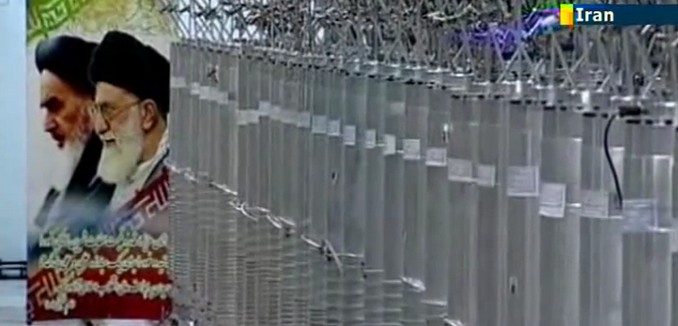Iran could delay inspections of suspicious nuclear sites for longer than the 24 days specified in the Joint Comprehensive Plan of Action (JCPOA), William Tobey, a former deputy administrator for defense nuclear nonproliferation at the National Nuclear Security Administration, wrote Monday in an analysis for Foreign Policy. Tobey explained that snap-back provisions in the JCPOA effectively allow Iran even more time to answer inquiries by the International Atomic Energy Agency (IAEA) before facing penalties, which it may use to hide evidence of illicit nuclear work and render an inspection meaningless.
First: the JCPOA specifies that if the IAEA has concerns regarding undeclared activities, it should first raise the matter with Iran. If the regime’s response proves unsatisfying, the IAEA could then request access to a facility, triggering the 24-day timeline. But the JCPOA leaves unspecified the time Tehran would have to answer the initial IAEA expression of concern — although such a step would, of course, tip off those attempting to conceal illicit activities.
Second: even if Iran defied a decision to grant the IAEA access to a suspect site, under the terms of the JCPOA, it would take 85 days before sanctions could “snap back.” At, say, day 70, Iran might well relent and invite the IAEA to tour the suspect site, leaving the other parties to the JCPOA to decide between sanctioning Iran and tubing the agreement, or accepting the inspection offer and hoping the deal can limp on. Based on the arguments being made about not letting the “possible military dimensions” of Iran’s nuclear program stand in the way of a prospective accord, it is pretty clear how that dilemma would be resolved.
Tobey pointed out that these terms result in an inspections regime that is significantly weaker than that granted to the IAEA under the Additional Protocol, which provides for 24 hour access to suspicious facilities for “special inspections.”
Thus, the real-time delay Iran might be able to impose on a request to inspect a suspect site could be much more than 24 days. Worse still, this undercuts existing IAEA authorities under the Additional Protocol — which provides for 24-hour (not day) access under special inspections. Were the IAEA to attempt to invoke such authorities, Tehran would likely argue, with some justification, that the JCPOA establishes a much longer process.
Tobey observed that the language of the JCPOA reveals that the administration’s claims that it would insist on “anytime, anywhere” inspections as part of any nuclear deal have not been fulfilled. According to the administration, illicit nuclear activity in suspected facilities can still be detected after 24 days.
In early 2003, the National Council of Resistance of Iran (NCRI) identified the Kalaye Electric company as a site where Iran was conducting secret nuclear research. The International Atomic Energy Agency (IAEA) asked for permission to inspect the site in March. Iran held off until August before giving in, claiming that it was not obligated to give inspectors access because it hadn’t yet ratified the Additional Protocol. When inspectors were finally allowed to enter the site, they did find evidence of enriched uranium, but as The New York Times reported:
In early August inspectors had found major renovations at the Kalaye electric plant, including a new floor and other structural changes that could have covered over evidence of contamination, a diplomat said today.
The IAEA report (.pdf) on the incident added, “that IAEA inspectors found considerable modifications had been made to the premises at the Kalaye Electric Company prior to inspections that may impact on the accuracy of the environmental sampling.”
Tobey’s analysis followed an op-ed he wrote last week arguing that without fully accounting for past nuclear work, even “anytime, anywhere” inspections wouldn’t, by themselves, be sufficient to catch all of Iran’s violations.
[Photo: Jewish News One / YouTube ]




